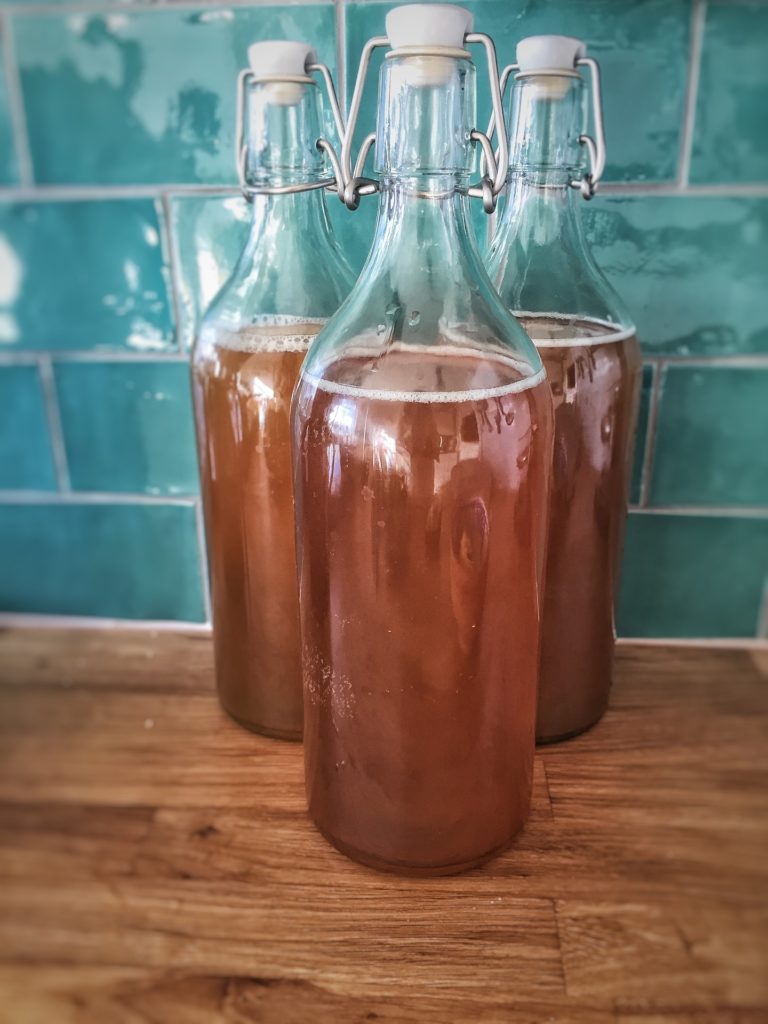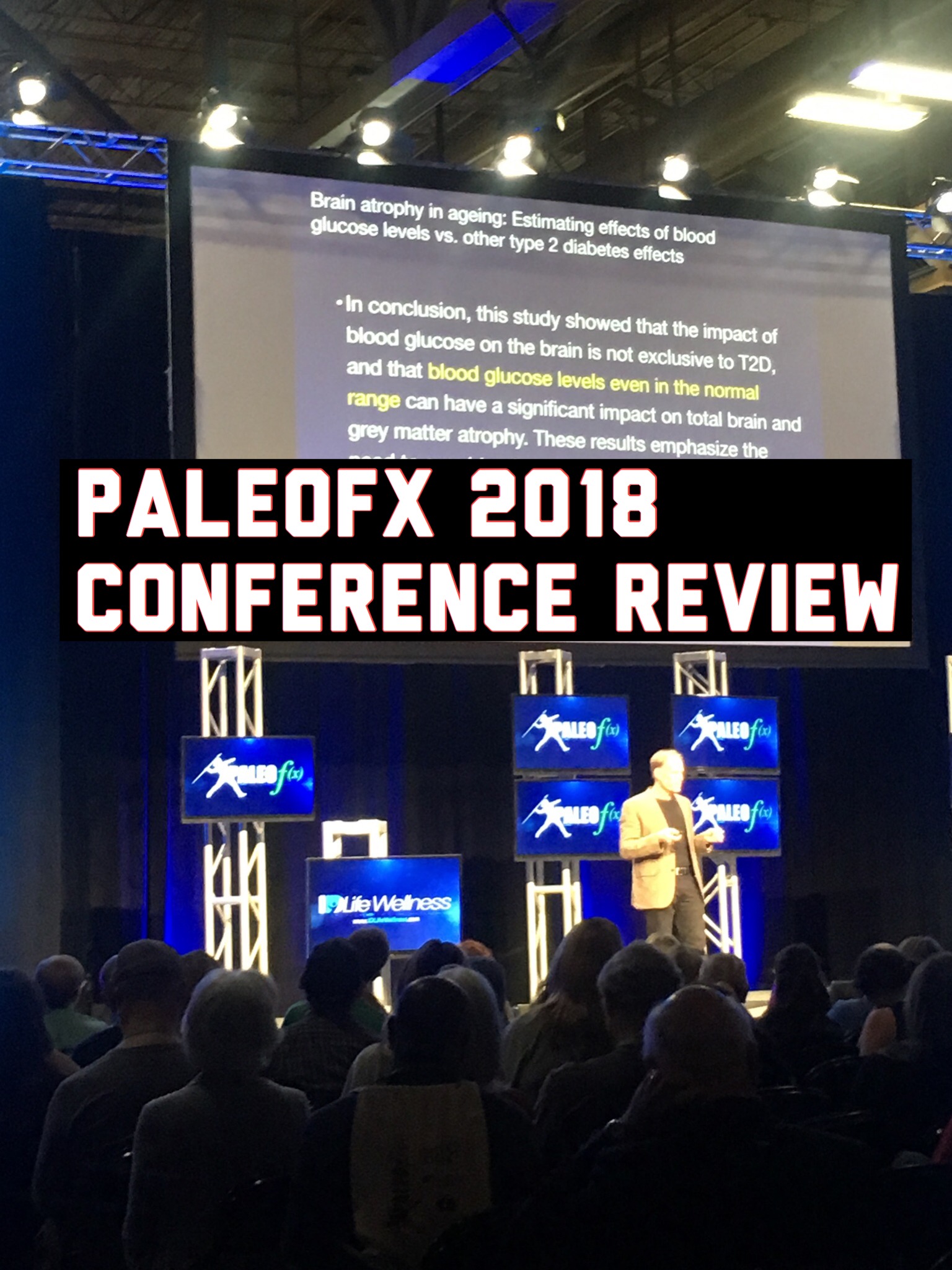I decided to get out of my comfort zone, and attended the health conference, PaleoFx.

This conference covered a wide variety of topics and products, ranging from stem cells to pesticides, and everything in between.
I appreciate the approach that most people in this domain take towards health and wellness, and being here made me realize both how important nutrition is, and how little I know about the topic. I look forward to diving more into this domain over the next several years.
Check out the video review, then read my course notes below.
Table of Contents
Conventional Medicine vs. Functional Medicine
Conventional medicine treats the smoke but ignores the fire. The aim of the functional approach is to treat the root cause of disease, which often involves lifestyle modifications and looking at the person as a whole.
While it is common in the functional approach to perform a huge array of tests, many tests give us incomplete information or are completely overrated (such as microbiome and adrenal testing).
The best course of action? Trusting how your body responds and feels.

Despite the efficacy of functional medicine, insurance rarely covers it. However, lack of coverage does not imply lack of scientific validation. What is covered by insurance is determined by executive committees, not necessarily scientists.
All being said, if you decide to go down the functional medicine rabbit hole to improve your health, make sure your inputs are solid. So take care of sleep, nutrition, stress management, etc.
All Things Gut
Gut health is kind of a big deal, as gut issues have been linked to things ranging from depression to obesity. Albeit a murky area, it’s kind of a big deal.
To improve gut health, it’s important to understand, and avoid, some big contributors to gut dysbiosis. These are some of the heavy hitters:
- Glyphosate – This is a chemical spray used on plants that is an anti-biotic.
- Sugar/processed foods
- Lack of bacteria in first 3 years of life (c-section births, no breastfeeding, antibiotics, germophobia)
- GMO – Leads to increased anti-herbicide use
- Proton-pump inhibitor medications – have a negative impact on the gut and have been shown to increase dementia risk by 40%
The sad thing is if you have had an insult on your microbiome, there is no going back. Gut diversity cannot be restored, but health can be maintained.
The best thing you can do to keep your microbiome healthy is eat a wide variety of vegetables.
Probiotics
Probiotics seem to be all the rage, but there is a lot more to them than drinking a kombuca and calling it a day.

There’s even confusion about how probiotics work. For one, they do not colonize your microbiome. Instead, they give your current community a nudge by producing peptides that poison off overgrowth.
Despite the confusion, probiotics are important for most people to consume. In fact, they have been shown to be effective in treating depression.
There are about four categories of probiotics, all of which ought to enter your system to various extents:
- Lactobasilis and bifido
- Sacromyosis spores
- Basilis
- E. Coli
The best probiotics sources are in wild fermented foods.
Inflammation
This section was spurned from a talk my Dr. Perlmutter, a neurologist who uses dietary interventions with many of his patients.
We listened to him discuss Alzheimer’s disease, and some of the facts he mentioned were downright scary. For example, there is a 50% chance of Alzheimer’s development at age 85.
Sadly, Dr. Perlmutter believes the way we approach this disease is all wrong. We battle with big weapons of pharmacology, when what we are really dealing with in this disease is a curable situation. Instead of battling, we ought to be nurturing.
The key to nurturing the body and preventing Alzheimer’s? Reducing the cornerstone of most diseases: inflammation.

Many inflammatory factors have been shown to impact brain health. Early life inflammation lowers brain volume and increases neurodegenerative disease risk later in life. Also, type 2 diabetes equates to aggressive brain loss, as there is a linear relationship between blood sugar and dementia. Bodyfat, especially visceral, is the worst factor contributing to inflammation. As it acts like an organ.
First line of defense is to resolve inflammation by removing insults:
- Proton pump inhibitors
- Stop taking anti-inflammatories
- Reduce stress
- Poor diet
- Lack of sleep
Easy Breathing Fixes
I had the pleasure of assisting my best good friend Lucy Hendricks with a hands-on workshop she had scheduled while I was there.

Lucy taught everyone some basic keys to effective breath-work; building a foundation to enhancing mobility.
Her three keys to breathing:
- exhale
- reach (the arms)
- tuck (the hips)
A couple moves that we practiced these keys on were the bear position:
and the dead bear position (courtesy of Lucy)
To say the least, the attendees got some really nice changes.
Beef Should be for Dinner
I got to listen to Diana Rogers, and she killed some sacred farming cows.
Literally.
Diana’s talk focused on how cows can actually help the environment, and she squashed much of the misinformation on farming in general.

Cows are often blamed for harming the environment for methane production, but mono-diversity farming (e.g. growing an entire plot of corn or rice only) is equally unhealthy for the environment.
Organic farms are not much better, as they still induce harm on the ecosystem. These farms use chemicals, need animals for manure, bones, blood, etc. Basically, there is no humane way to eat without animal blood on your hands in some way.
Though animal blood is not necessarily a bad thing. Animal manure and bone meal help enrich the soil. Animals can also help stimulate grass growth by chewing and stomping. While if left unchecked, these animals can destroy the soil, creating a predator-like experience (e.g. mob grazing by controlling and moving where the cows graze, as well as harvesting the cows) can prevent overgrazing.
Moreover, because cows are much larger animals, they can have a much better impact on the farmland per ounce of food. One cow can produce substantially more meat than a chicken, thus are less costly per food return to produce. In comparison, grass fed beef costs less per ounce than a Snickers bar.
Cool Products
Mother Dirt – These are skin care products used to help replenish the skin microbiome that is often depleted by antibiotics, anti-bacterial soap and more. I’ve been using this product and I’ve seen some incredible changes in my skin quality.
Qualia – This product is a nootropic, which basically helps with brain health and focus. While I didn’t get much benefit, several colleagues swear by this stuff.
Muse Meditation – This is a device that measures brain activity while you meditate. If your mind starts wandering, you’ll get an increase in sound to help you refocus (e.g. it will storm harder), and if you are in a focused state, it rewards you with a different sound (birds chirping). It also gives you focus scores and metrics to improve your meditation skills.
Saunaspace – This thing is a pocket infrared sauna, so you can set up a sauna at home to receive the benefits.
People to Check Out
While the above notes were snippets from a bunch of different people, these were some of my favorite speakers:
Chris Kresser – One of the best functional medicine resources around. Love his comprehensive approach to health.
David Perlmutter – a neurologist who focuses a ton on diet’s role in brain health.
Dr. Joseph Mercola – a doctor who speaks about a wide variety of health topics.
Dr. Michael Ruscio – A functional medicine practitioner who has done many great things with simplifying gut health.
Diana Rogers – An RD who is filming an awesome documentary “Kale vs. Cow”
Sarah Fragoso – A great coach who writes some amazing paleo cookbooks. She knows her stuff.
Charles Mayfield – A farmer who is a big proponent of everyone growing some of their own food.
Sum up
There you have it. The big takeaways from an excellent conference.
To summarize:
- Functional medicine looks to treat the root cause, but basics must be in place first.
- Gut health can be maintained by consuming vegetables and fermented foods.
- Inflammation control is top priority, and can be done by good sleep and nutrition
- Exhale, reach, and tuck go a long way
- Cows are important for soil health.
What do you do to reduce inflammation? Comment below and let us know.

